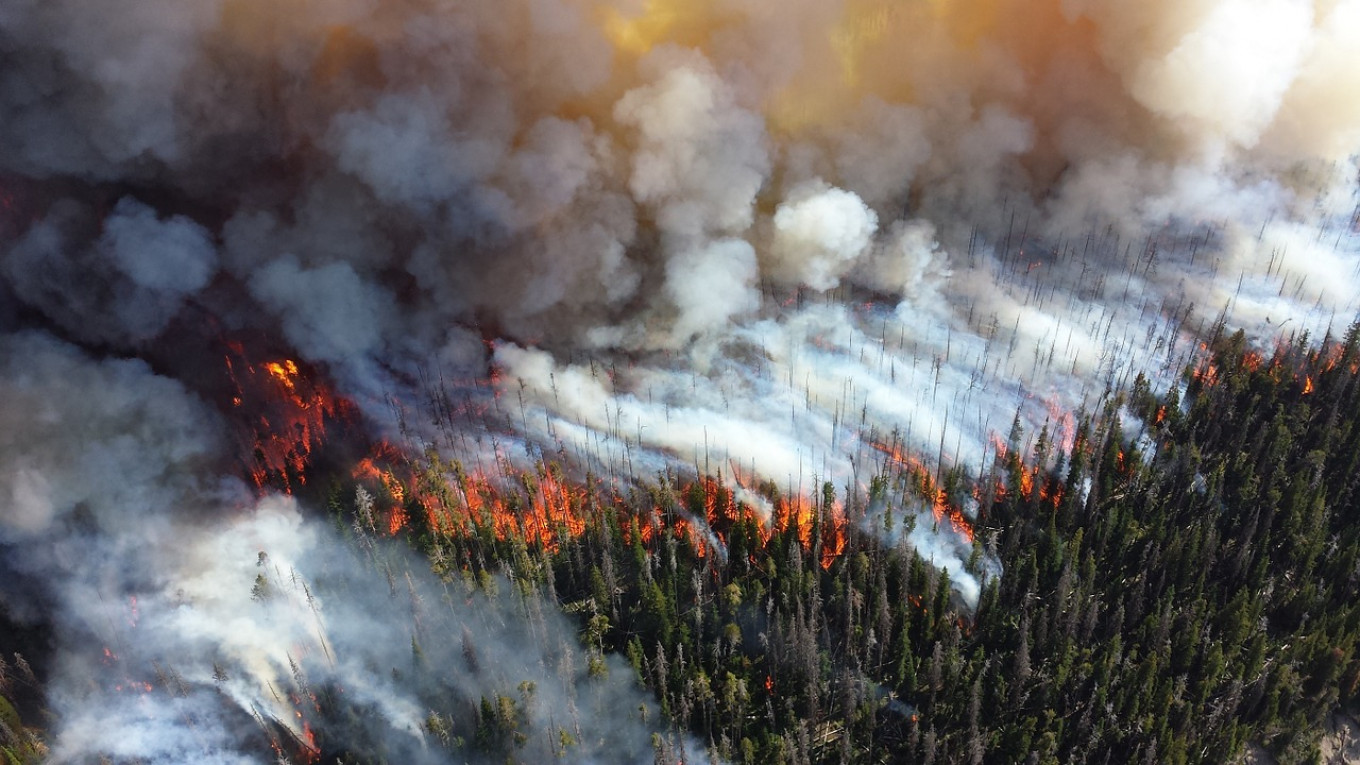
Smog from wildfires currently raging in Siberia could reach as far as Moscow, Greenpeace Russia told The Moscow Times on Tuesday.
An unprecedented number of wildfires has spread across the region since June, exceeding an area the size of annexed Crimea. Authorities have been slow to declare emergencies and firefighting efforts have been scaled back over economic concerns, prompting residents to post pleas for help and demands for action online.
Smoke from the forest fires has already reached the shores of Alaska, said Grigory Kuksin, the head of Greenpeace Russia’s fire department.
“If the wind blows west, the smoke will go beyond the Ural Mountains and may reach Moscow, which is extremely rare. If that happens, we’ll be able to see haze,” Kuksin told The Moscow Times.
The smoke will likely increase the mortality rate in the regions closest to the fires, he said. Smog has already reached major cities including Novosibirsk and Tomsk, leading to a rise in complaints over air pollution.
The fires could also exacerbate climate change, Kuksin said, and will lead to an even bigger loss of forest areas.
“The burning releases carbon dioxide, affecting the greenhouse effect, and ash from the fires accumulates on the Arctic ice … and causes the glaciers to melt,” he told The Moscow Times.
Prime Minister Dmitry Medvedev has asked the country’s national resources and environment minister to travel to the regions affected by the fires and assess the situation, the Kommersant business daily reported on Tuesday.
On Monday, the governor of the Krasnoyarsk region had said it would be “pointless and at times even harmful” to try to extinguish the flames.
